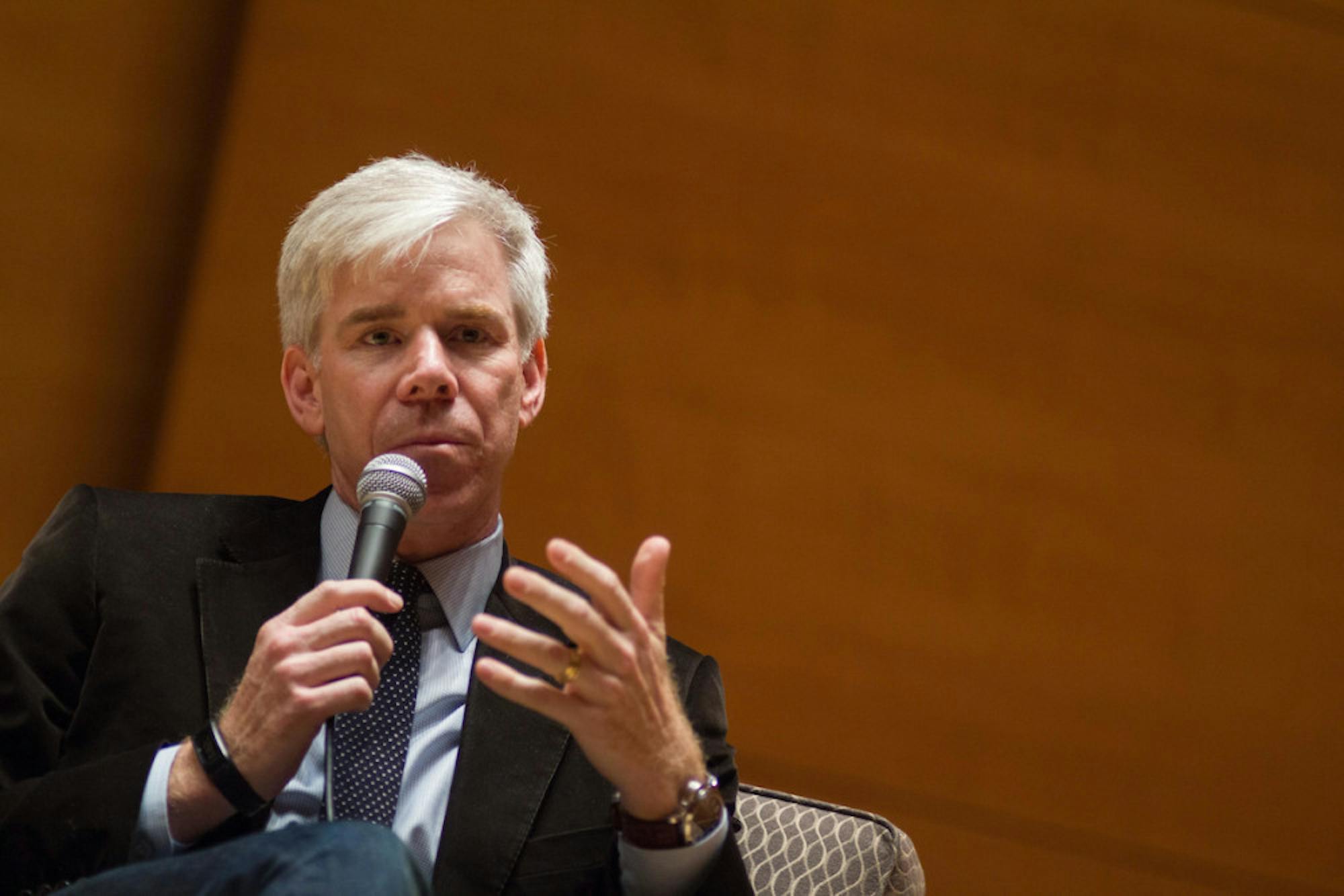Tisch College Professor of the Practice David Gregory moderated a panel entitled "A Year Like No Other: Politics & the Press in 2016," featuring New York Times Political Correspondent Patrick Healy (LA '93), NPR Political Reporter Asma Khalid and Mic! Co-founder Jake Horowitz.
The event took place last night in Granoff Music Center's Distler Auditorium as part of Tisch College's Distinguished Speaker Series.
During a roundtable with student journalists before the event, Gregory commented on the New York Times' strategy of bullet pointing its news for millennials who may avoid reading full articles, despite an increased demand for specificity in coverage from that same age group.
"There is shorter attention but there is greater interest in explanation and exploration on the part of audiences," he said.
He also emphasized that the media now focuses more on the mechanics of politics rather than voter background, and because the media has grown more partisan over time, people are increasingly turning to it in search of specific perspectives.
"This is where news coverage and commentary become conflated and becomes consumed by people who want to validate their view of the world," Gregory said.
Horowitz also discussed the perilous impact of Republican presidential nominee Donald Trump's initial ability to create and share his perspectives on the world with people who already shared similar opinions — those perspectives then seemed to become their reality.
"The filter bubble is very real," Horowitz said. "You end up getting news from your friends and that can often be very, very at odds with what are the actual facts."
Dean of Tisch College Alan Solomont then opened the panel with an introduction and several expressions of thanks before turning it over to the moderator and panelists.
Gregory began by commenting on the evolving role of media in this year's presidential race.
"This has been an incredibly turbulent year in politics but also in journalism," he said. "There's a lot of changes at work that you're seeing manifested in the course of the campaign and the coverage of the campaign."
Most of what Gregory and the panelists shared regarding this year's presidential campaigns focused on Trump rather than Democratic presidential nominee Hillary Clinton.
In response to a question about the Times' decision to refer to Trump as a liar regarding his accusation that President Barack Obama was not born in the United States, Healy discussed the importance of words in this election, because while Trump later acknowledged Obama's American birth, he had continued issuing these accusations for years after they were proven untrue.
"Any reasonable person should have known it," Healy said. "And any reasonable person should have known that their intent in this case was to keep pushing a lie so we decided to call it that and go big with it."
Panelists were also asked about the media's role in this election, and Khalid responded by discussing the increased pressure that the media faces to call out Trump on racist remarks.
"My job, I believe, as a journalist is to inform as wide of an audience as possible," she said. "I don't feel that labeling such words and such actions is particularly helpful, I don't feel that labeling a person as such is ever accurate and I actually think that people's actions may describe that more than a particular person [could]."
Horowitz went on to discuss the increased demand from voters for media to provide discerning commentaries on the candidates.
"Most millennials that I've talked to all over the country found it very frustrating for months and months and months, watching cable news commentary of this campaign ... and ... hearing people kind of treating what Donald Trump said ... with the same airtime as anything else," he said.
An audience member later asked about how the coverage will change after the election when a significant percentage of the American population will be dissatisfied after voting for the losing candidate. Healy responded that it will depend largely on who wins next month. He also stressed the importance of covering the impact of election results in the middle of the country rather than just in Washington D.C. and coastal states.
Solomont closed the panel by thanking the four guests and noting that Massachusetts' voter registration deadline is tomorrow, Oct. 19.
Catherine Perloff contributed reporting on this article.
David Gregory moderates journalist panel on election cycle






